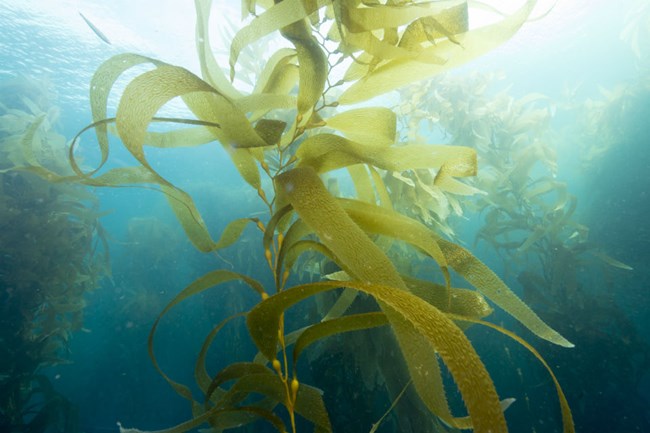More Seaweed to Tackle Climate Change and Feed the World
An Approach to Restore Ocean Health While Generating New Economic Opportunities

We often think that human activity, however well intentioned, negatively impacts nature. This need not be the case, nor has it always been the case in the past. For example, the tallgrass prairies of our Great Plains and their enormous productivity can be attributed to the fire ecology practiced by Native Americans.
Development of large-scale seaweed farming in our oceans can be another type of human activity to enhance nature’s bounty. An increasing body of research is documenting the potential of growing kelp and phytoplankton forests to provide food, feed, fertilizer, fiber, and biofuels to most of the world while efficiently storing carbon, offsetting or even reversing acidification and increasing oxygen. Kelp grows many times faster than trees and even fast-growing bamboo.
Human industrial practices and consumption patterns have led to hotter waters and expanding “deserts” in our oceans. Think of dying coral reefs, extensive dead zones in the Gulf of Mexico and elsewhere, and sea floors carpeted with plastic microfibers but devoid of life. Scientists have found that 99 percent of tropical and subtropical oceans are almost totally lacking in marine life. With warming, the oceans’ currents and winds are being turned off one by one. These and other changes to our oceans are laid out alarmingly in the recent report by the Intergovernmental Panel on Climate Change.
Proponents of marine permaculture propose building lightweight lattice structures to which seaweed can attach. Near coastlines, they could be tethered to the ocean floor or be submerged about 80 feet and allowed to drift in the open sea. With kelp and phytoplankton forests come a great diversity of fish as well as crustaceans, sea mammals, and birds. Fish populations will soar. These kelp farms will also be fish farms without boundaries or outside inputs. The fish will be diverse, wild, untainted, and full of omega-3 fatty acids.
Most of the carbon emitted by human activity is contained within the top 500 feet of the ocean. Any farmed seaweed not consumed by ocean creatures or harvested for biogas or fertilizer would die off and sink to the deep ocean floor, sequestering carbon for centuries. Oceans naturally do a good job of moving carbon from surface water to the depths.
Besides mitigating climate change and restoring the health of our oceans, large-scale kelp farms offer the prospect of big returns on investments: increased seafood catches, fertilizers, medicines, biofuels, and beauty products, and as an additive to livestock feed. In animal feed, it can reduce potent methane emissions from cows and other grazing livestock by as much as 70 percent, while transitioning land for uses other than growing soy, corn, and grass for ruminants.



